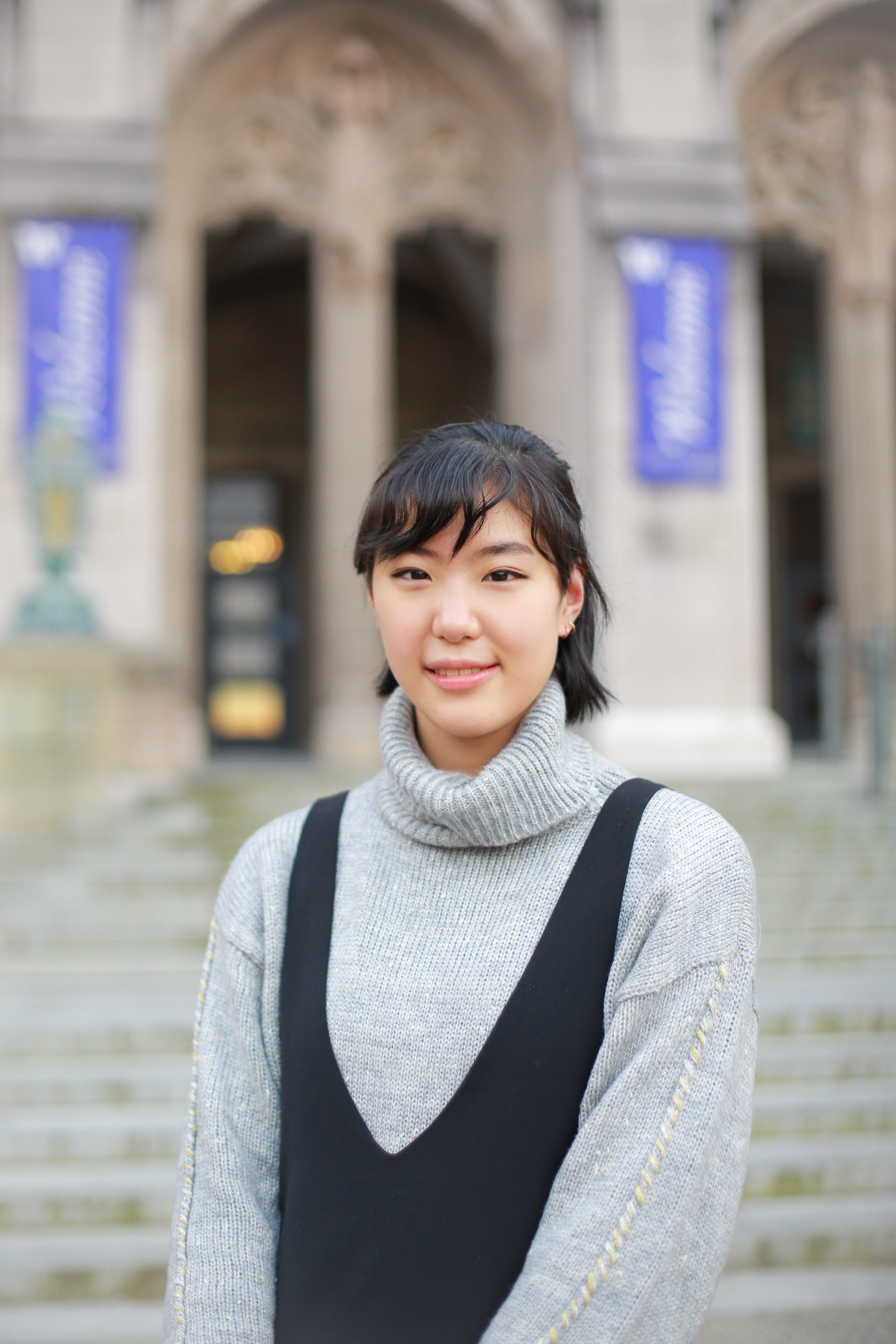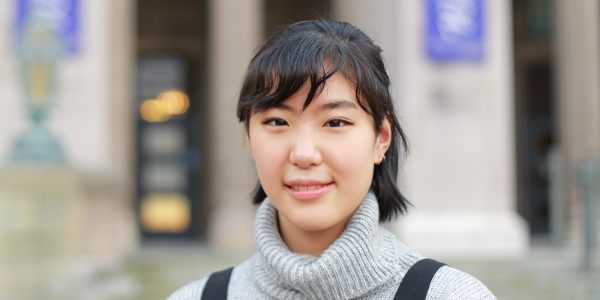Wing Yun Au is a a senior in the Department of Bioengineering. She is completing her capstone with the Yazdan lab and is planning on applying to medical school after graduation.
Please tell us about your background. Perhaps share something about your cultural background, your journey, or just a fun fact about yourself?
I grew up here in the Greater Seattle area, so UW has always been on my radar for higher education. In my free time, I like to swim and do photography. A random fun fact about me: I like to collect produce stickers — I first started collecting the Cuties mandarin stickers back in 7th grade and now I have a book full of stickers from bananas, kiwis, bell peppers, etc.
Why UW BioE?
Coming out of high school and through freshman year, I knew that I was interested in both the medical field and the innovative nature of engineering, so bioengineering just seemed like the perfect combination. During my first year, I gained more of an interest in the area of computing and digital technologies with respect to medicine, which only strengthened my interest in bioengineering, since this area falls within a lot of research themes in the department. I also met a couple upperclassmen in the major that year who helped me justify this interest in bioengineering. In addition to telling me about the department and their experience, they encouraged me to go sit in on BioE core classes to see if I would like it — I did, and that’s how I chose UW BioE!
 What are your current research interests?
What are your current research interests?
I’m currently in the Yazdan lab [Azadeh Yazdan, assistant professor in bioengineering and electrical engineering], which focuses on neural engineering. We develop neurorehabilitation technologies for people with neurological disorders, such as stroke, by using stimulation techniques like optogenetics. My capstone project focuses on designing a quantitative brain model for convection-enhanced delivery (CED) of optogenetic viral vectors as part of a pre-neurosurgical toolbox. This model can be used to test optogenetic infusions beforehand to confirm the spread and accuracy of the infusion. This can allow for more efficient and effective CED procedures as well as contribute toward the development of optogenetics in stimulation therapy for stroke survivors with sensory and motor impairments. CED also has proposed uses in delivering drugs directly to the brain to treat tumors, Parkinson’s, Alzheimer’s and other neurological diseases, which this project will support as well.
What are your career goals?
My goal after graduation is to become a physician. I didn’t realize that I was interested in this path until about a year ago (thanks to BIOEN 337!). While I knew that I was interested in the field of medicine, I didn’t take a close look into the patient-centric side until then. I’m really glad I did! Looking back, I came into UW wanting to be a research scientist, which then changed into wanting to become a professor, and then later being an engineer in the medical device industry. After my first shadowing session with a physician, it felt like everything had clicked together and I finally knew what career I wanted to pursue and would enjoy long term. While I’m still exploring the different specialties, I’m currently most interested in surgery.
What is the most valuable thing you have learned as a Bioengineering student? This could be technical knowledge or something you learned about yourself or peers.
As a Bioengineering student, the most valuable thing that I learned about myself was how much I enjoyed mentorship. I was a very introverted person who hated standing in front of the classroom during high school, so I never thought that mentoring would be something I liked. Through pushing my boundaries and being an Engineering Peer Educator, a writing tutor, a teaching assistant, and a mentor both inside and outside of Bioengineering, I was able to realize how much fun it was to lend my knowledge and experience to help others achieve their goals. The opportunities at UW and in the Bioengineering department have helped me decide that being a mentor is definitely something that I want to keep improving on and incorporate into my future career.
What is one piece of advice you would give your younger self?
I have so many! The most important one would be to understand that taking time for yourself and a mental break is also being productive. Before I realized this, I would tend to feel like I was wasting my time if I wasn’t doing anything that wasn’t schoolwork, research or extracurriculars, and while I was able to get a lot done, this mindset also made me stressed all the time. While it seems obvious, taking a break — not just a 15-minute break in between assignments, but occasionally a full day to yourself — really helps you refresh your mind, come up with better ideas, and enjoy learning more.


